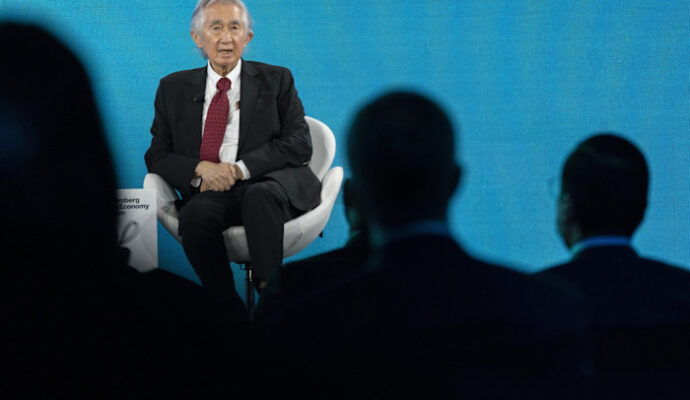Stay informed with free updates
Simply sign up to the Artificial intelligence myFT Digest — delivered directly to your inbox.
Nvidia chief Jensen Huang has condemned US export controls designed to limit China’s access to artificial intelligence chips as “a failure” that spurred Chinese rivals to accelerate development of their own products.
In strongly worded criticisms of chip policies pursued by successive US administrations, the chief executive of the world’s leading AI processor maker also criticised Washington’s decision to ban an Nvidia product designed specifically for the Chinese market.
He told a news conference at the Computex tech show in Taipei on Wednesday that export controls had turbocharged Chinese rivals, led by tech giant Huawei, to build competitive AI hardware.
“Four years ago, Nvidia had 95 per cent market share in China. Today, it is only 50 per cent,” he said. “The rest is Chinese technology. They have a lot of local technology they would use if they didn’t have Nvidia.”
Huang added: “Chinese AI researchers will use their own chips. They will use the second best. Local companies are very determined, and export controls gave them the spirit, and government support accelerated their development. Our competition is intense in China.”
Washington’s restrictions on sending advanced AI chips to China have prompted Chinese tech giants, including Tencent and Alibaba, to accelerate their purchases of domestic AI chips. The Financial Times has previously reported that Beijing has issued guidance to its tech companies to buy local AI chips in a bid to reduce dependence on imported technology.
The Trump administration in April effectively banned Nvidia from selling the H20, its watered-down AI chip tailored to align with former export controls, prompting a $5.5bn writedown by the company. Huang reiterated that Nvidia had no plans to roll out another product in its “Hopper” series for the China market, saying the company had already “degraded the chip so severely”.
Huang also slammed the Biden-era AI diffusion rule, which was set to take effect on May 15 and would have created a three-tier licensing system for AI chips used in data centres.
“The fundamental assumptions that led to the AI diffusion rule in the beginning have proven to be fundamentally flawed,” said Huang. “If the US wants to stay ahead, we need to maximise and accelerate our diffusion, not limit it.”
His comments come after the US and United Arab Emirates last week announced a plan to build the largest group of AI data centres outside America, which will be supported by Nvidia’s chips.
The Trump administration has said it is rescinding the planned diffusion regulation and is drafting a new rule that would allow US technology to flourish, but without enabling adversarial nations to access its technology. It is not clear when the rules will be finalised, but an administration official has cautioned they would take some time to implement.
In a bid to halt the global spread of Chinese AI tech, the US government has warned companies against using AI silicon from China, including Huawei’s Ascend processors. The Chinese commerce ministry lambasted the move on Monday, calling on the US to “immediately correct its wrongdoings” and stop “discriminatory” practices.


